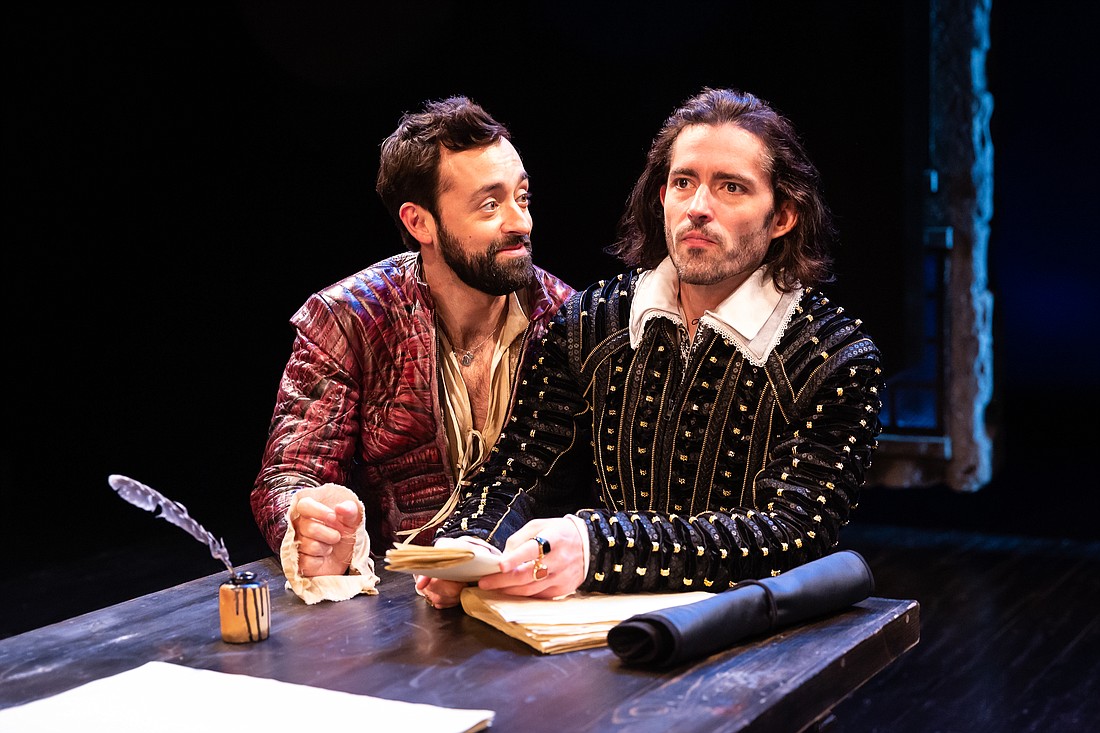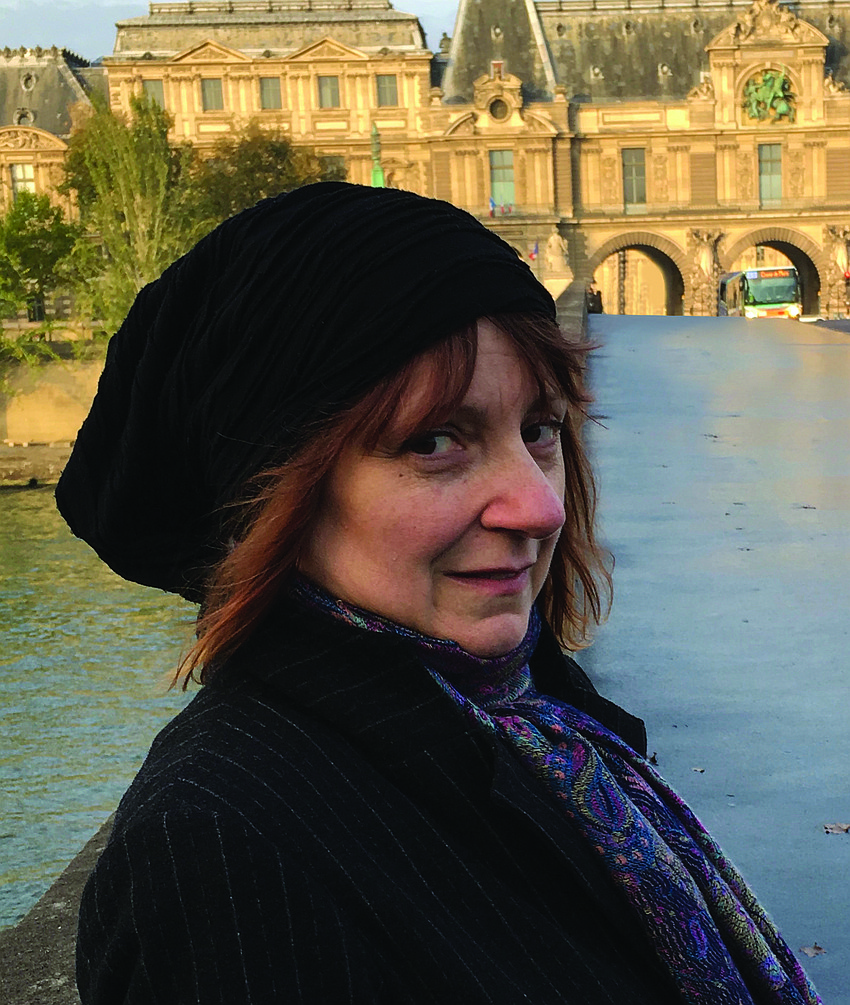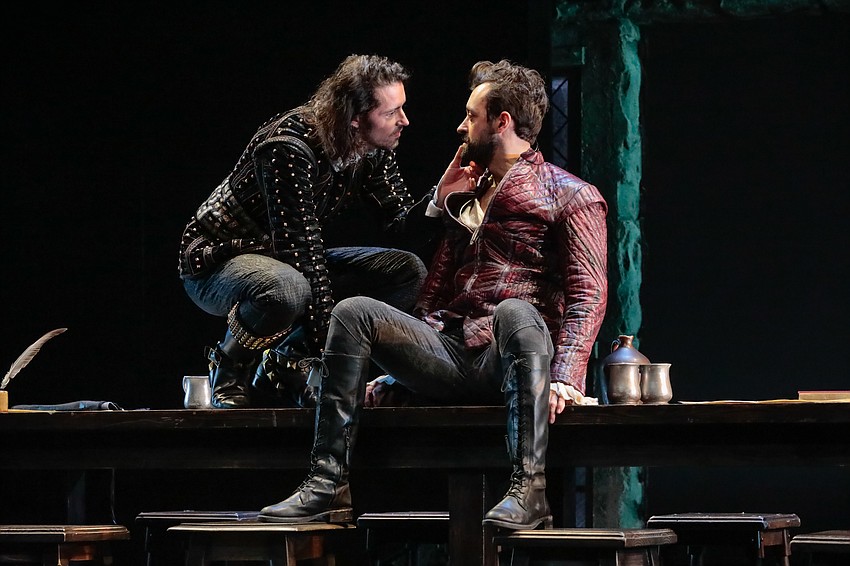- May 1, 2025
-
-
Loading

Loading

Costume dramas like “Shakespeare in Love” paint a pretty picture of Elizabethan times. Asolo Rep’s latest drama doesn’t. “Born with Teeth” is far less flattering — because it’s true to life. It’s a portrait of two artists, William Shakespeare and Christopher Marlowe.
The young Bard is an “upstart crow” from the country breaking into the playwriting game. Marlowe’s the cock-of-the-walk in London’s edgy theater scene. In Adams’ play, they’re bottled up in a rented room writing the Henry the Sixth history plays.
Sounds like lofty highbrow fare on Masterpiece Theatre, right? In “Born with Teeth,” it’s more like the dirty deeds of a Cold War spy thriller. The England of 1591 was a brutal totalitarian regime. Adams grounds the playwrights’ beautiful words in that ugly truth. There’s more to it, of course. To get the whole picture, we spoke to playwright Liz Duffy Adams.

(laughs) In a nutshell? It’s a festive comedy; it's a spy thriller; it's a love story. It’s also an examination of how artists survive in a totalitarian regime.
Absolutely! Elizabethan England was definitely not a Renaissance fair. It was a proto-fascist police state.
Thanks. “Burning Doors” by Belarus Free Theater was one major influence; I saw it at La Mama and it really moved me. It’s a play about artists surviving under a totalitarian regime — and it was created by artists working in just such a regime. One of the collaborators was a member of Pussy Riot.
When I saw this play, I’d already started working on “Born with Teeth.” I kept asking myself: Why do these playwrights matter now? How does their world speak to our world? I needed to be clear on that. When I saw “Burning Doors,” it electrified my mental synapses. I knew enough about Elizabethan repression to see the parallels to today.
Shakespeare always managed to navigate to safety; Marlowe always courted trouble and wound up assassinated. Thomas Kyd, who wrote “The Spanish Tragedy," was arrested and tortured. He was a very popular playwright. But the Privy Council broke his fingers, and he never wrote another play. The wrong word or thought could get you killed in the 16th century. There was no safety for Elizabethan artists back then.
It’s proven, actually — and that was really my starting point. I’d read that scholars had done a computational analysis of Marlowe and Shakespeare’s use of language in their plays. Based on that, they proved that they worked together on the three Henry the Sixth history plays. My hair stood on end when I found out about their collaboration.
Yes. Just to be clear, Marlowe and Shakespeare didn’t write all three Henry the Sixth plays in one session. My play unfolds in three separate scenes at different times.
I love that you say that. “Born with Teeth” actually plays with the reason that he’s a blank slate. Shakespeare didn’t want the world to know his true self.
No, you wouldn’t.

I’m deeply indebted to Christopher Nicholl’s “The Reckoning: The Murder of Christopher Marlowe.” He’s a historian and it's non-fiction. It’s an absolute page-turner — and a big influence on “Born with Teeth.”
That ubiquitous paranoia was very real in Elizabethan times. And I definitely see echoes of “Brazil.”
That’s true — and that threat is hanging in the air for Shakespeare and Marlowe. They constantly challenge each other: Here’s a great idea for a scene. No, we can’t do that. That’ll get us arrested.
They’re having it around the world.
I just want to say that I’m in love with everyone involved with “Born with Teeth.” Director Rob Melrose definitely gets it. The two actors are absolutely brilliant — their performances are incandescent. I loved what they did at the Alley Theatre premiere, which Rob also directed. As a playwright, I’m incredibly happy — and lucky — to come see them again on the Asolo Rep stage.